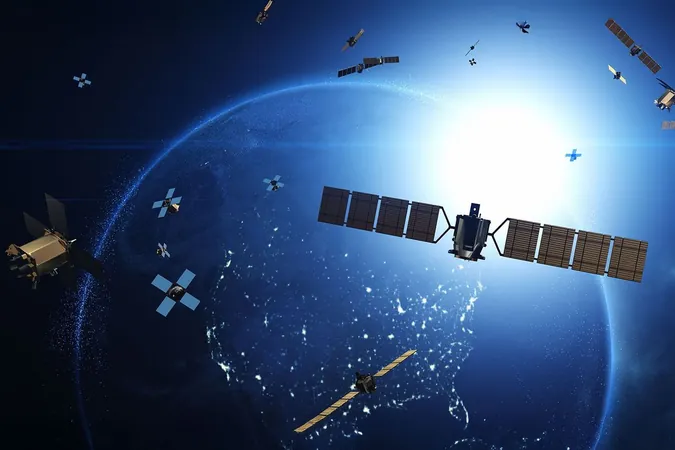
Experts Urge Space Junk Cleanup to Mirror Ocean Conservation Strategies
2025-01-11
Author: Yan
Introduction
Humans often envision Earth as a pristine blue marble floating amidst an infinite cosmos, but the reality is far less idyllic. Our ventures into space have not only expanded our horizons but have also led to the accumulation of space debris, commonly referred to as space junk. As the demand for satellites skyrockets with our ambitions to explore the solar system and beyond, the problem is projected to worsen, potentially jeopardizing future space travel and exploration.
Comprehensive Review
In a recent comprehensive review published in the journal One Earth, an international team of scientists from diverse fields ranging from satellite technology to ocean conservation has proposed a revolutionary approach to tackle this pressing issue. They advocate for applying effective ocean cleanup strategies to the realm of space debris management.
Risks of Space Debris
The hazardous debris surrounding our planet poses significant risks to both astronaut safety and vital infrastructure in orbit. Moreover, it has repercussions on ground-level technologies such as GPS, mobile data, and weather monitoring systems. The research team argues that to address this escalating crisis, it is imperative to hold debris creators financially accountable, develop and enforce global legislation, incentivize companies to reduce orbital waste, and foster cooperative scientific efforts.
Call to Action
“The increasing accumulation of debris in these critical orbits amplifies the risk of collisions with functional assets and undermines the sustainability of these essential environments,” the authors assert. They emphasize the importance of managing the orbital space as a limited resource that necessitates protective measures and conservation efforts.
UN's Role
Notably, the scientists are calling upon the United Nations to take action by establishing a new sustainable development goal focused specifically on space conservation. The UN already champions 17 sustainable development goals aimed at addressing issues like poverty and environmental sustainability, and researchers are pushing for the addition of an 18th goal dedicated to the stewardship of Earth’s orbit—prioritizing the prevention of further space junk accumulation.
Comparative Analysis
While acknowledging the differences between marine and orbital environments—both in physical characteristics and chemical compositions—the authors contend that both share a crucial dilemma: the pervasive presence of debris across significant portions of our planet's shared environments.
Conclusion
As we stand on the brink of a new era in space exploration, the integration of ocean cleanup strategies into the realm of space junk management might just be the key to safeguarding our celestial surroundings. The future of space travel—and our ability to continue exploring the great unknown—may very well depend on our ability to address this imminent threat seriously and collaboratively. Will we rise to the challenge? Time will tell.






 Brasil (PT)
Brasil (PT)
 Canada (EN)
Canada (EN)
 Chile (ES)
Chile (ES)
 Česko (CS)
Česko (CS)
 대한민국 (KO)
대한민국 (KO)
 España (ES)
España (ES)
 France (FR)
France (FR)
 Hong Kong (EN)
Hong Kong (EN)
 Italia (IT)
Italia (IT)
 日本 (JA)
日本 (JA)
 Magyarország (HU)
Magyarország (HU)
 Norge (NO)
Norge (NO)
 Polska (PL)
Polska (PL)
 Schweiz (DE)
Schweiz (DE)
 Singapore (EN)
Singapore (EN)
 Sverige (SV)
Sverige (SV)
 Suomi (FI)
Suomi (FI)
 Türkiye (TR)
Türkiye (TR)
 الإمارات العربية المتحدة (AR)
الإمارات العربية المتحدة (AR)